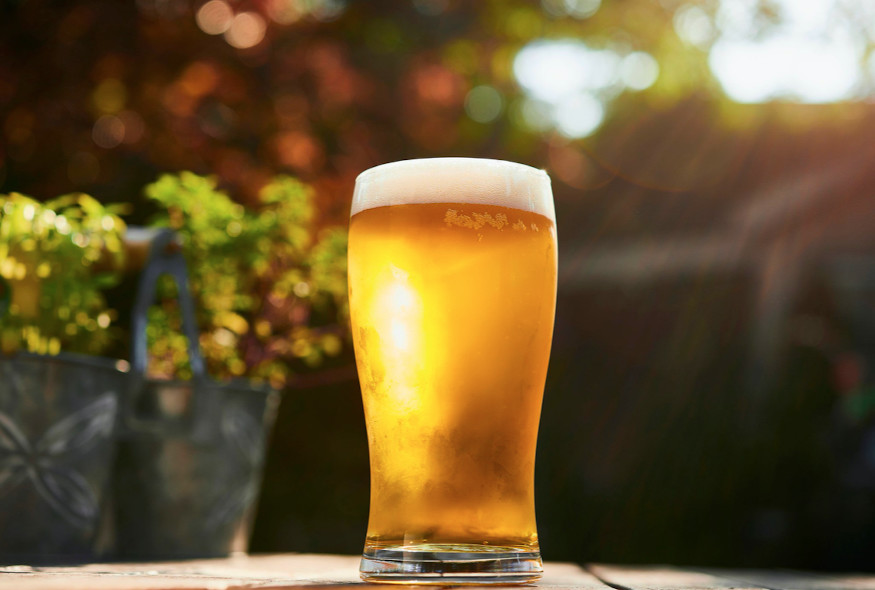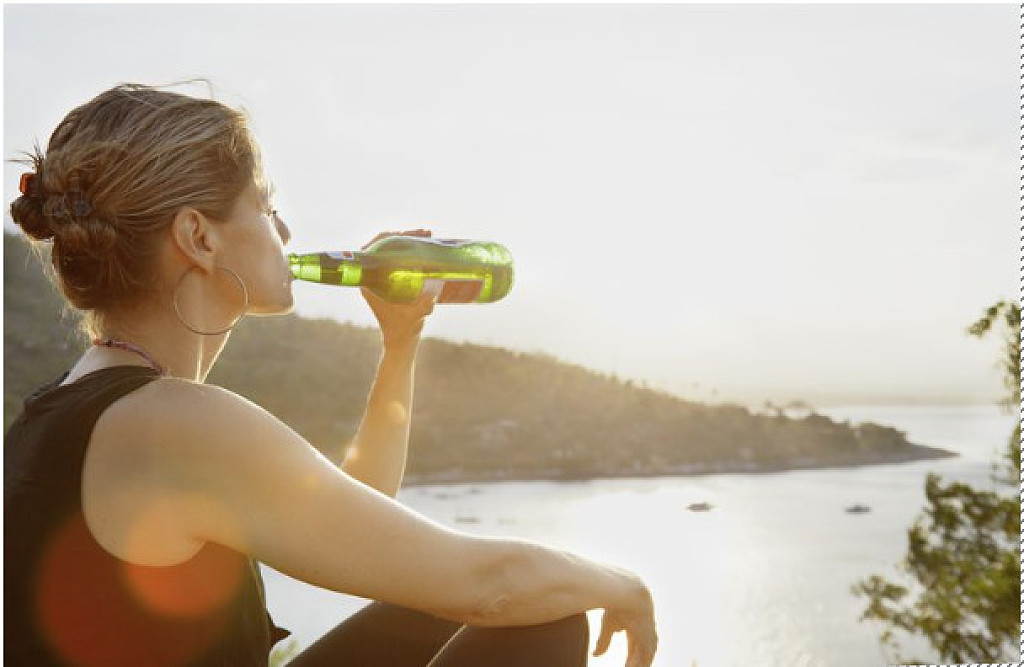Running News Daily
Running News Daily is edited by Bob Anderson. Send your news items to bob@mybestruns.com Advertising opportunities available. Train the Kenyan Way at KATA Kenya and Portugal owned and operated by Bob Anderson. Be sure to catch our movie A Long Run the movie KATA Running Camps and KATA Potato Farms - 31 now open in Kenya! https://kata.ke/
Index to Daily Posts · Sign Up For Updates · Run The World Feed
The Truth About Alcohol And Endurance Sports
Just like Sunday brunch with friends and happy hour with coworkers, the post-run drink has become a uniting ritual for runners. An Instagram search for hashtags #willrunforbeer and #runforwine reveals thousands of photos of smiling, sweaty runners-many of them women-downing frosty pints of beer or clutching super-sized glasses of wine. Promotion for everything from casual neighborhood brewery runs and Rose 5Ks to large-scale destination races like the Napa-to-Sonoma Wine Country Half Marathon only amplify the message: alcohol is a justifiable reward for hard-run miles, and alcohol and exercise go hand-in-hand for many.
Many of the races, like the Zooma series and Disney Princess Half Marathon Weekend, explicitly bill themselves as girls' weekend getaways, complete with luxury accommodations, elaborate swag bags, and post-event parties with free flowing wine, beer, and other libations. In addition, much of the running merchandise targeted to women is branded with catchy, alcohol-related slogans like "Run All the Miles, Drink all the Wine" and "Will Run for Beer." Not to mention all the other ways alcohol and exercise are becoming entwined: think beer yoga and wine hikes; FitVine's collab with Barry's Bootcamp; Sunday sip and spins with mimosa bars post-spin class.

But just as women are closing the gender gap in road race participation, comprising just over 60% of all race finishers in 2019, recent studies also show that women are closing the gender gap when it comes to alcohol consumption-and not in a good way. According to a 2019 study, women in their late teens and early 20s now report drinking and getting drunk at higher rates than their male peers, and pandemic-related anxiety, depression and stress have only exacerbated unhealthy drinking patterns for many.
And while for most people, a celebratory drink with friends after a group run or at the finish line is no more harmful than a sugar doughnut or indulgent brunch, how did alcohol-a mood-altering drug-become such an integral part of a sport that promotes health and wellness?
Racing as an experience
Just as running's second wave in the late 1990s and early 2000s dramatically increased women's participation in the sport, it also increased demand for destination and experiential races. From the launch of the pioneering Rock 'n' Roll series in the late 1990s to the women-centric Zooma and Disney Princess events that followed in the early 2000s, races became bigger and bolder, with on-course live music, branded merchandise, elaborate medals, and themed post-race parties serving everything from hot chocolate and cheese to bacon, pancakes, and of course, alcohol.
These unique race experiences appeal to seasoned runners like Cara Turano of Portland.
"I used to be really happy with a cool medal or t-shirt, but you can only have so many medals and shirts," she explains. "Perks like finishing in a beer garden or bringing home wine glasses is a much more memorable experience."
Turano ran the Bordeaux Marathon a few years ago to celebrate her 35th birthday and honor her mom's passing.
"The race included 24 wine stops over 26.2 miles, and it was the most amazing, festive, and supportive experience with 10,000 runners from around the world, all in costume, running pretty slowly through rolling vineyards in the gorgeous South of France," she recalls, adding that destination races are "a great way to combine a passion for running with one for travel."
Similarly, Nina Santus, a board member of Athens Road Runners in Georgia, frequently travels to races, choosing an experience based on personal interests or connections to a specific cause.
"I ran the Marine Corps Marathon because my brother was in the Marine Corps," she explains. "I'm also a big wine person, so if I can find a race where I can run and see the vineyards and enjoy food and drink afterward, I will do it." Santus plans to run the Marathon du Medoc next fall and has run alcohol-centric races like the Dirty Spokes Chateau Elan Muscadine Run and the Ales for Trails Terrapin Beer 5K, closer to home.
"I don't participate in beer miles where you have to chug things or get sick or be drunk, but I do support the idea of food and beverage to help bring more folks out for camaraderie and the sport of running," she continues.
For race director Tes Sobomehin Marshall, founder of Run Social Atlanta, that camaraderie is baked into her company's mission. With runs and races that launch or end near local businesses ranging from breweries and restaurants to physical therapy studios, athletic-wear stores, and entertainment-focused venues like Top Golf, the company markets itself to "both the competitive runner and the 'I just want a shirt and a beer' person," explains Marshall.
When she first started organizing races in 2012, Marshall realized "people were coming and spending 30 minutes running the race, and then another two to three hours socializing after." She finds her laid-back, social, and neighborhood-centric approach to racing "more accessible to people who wouldn't otherwise run and more fun for people who've been running for a while."
Atlantan Audrey Ward, who started running earlier this year, appreciates low-key, social races.
"As a newer runner, just getting my shoes on and out the door can be intimidating," she says. "Having a good time with people who just like to run (and maybe to cheers with afterward) takes the pressure off what can be a super-competitive sport."
According to Santus, the 300-400 member Athens Road Runners keeps its events approachable to make runners like Ward feel included.
In addition to Saturday morning training runs and Wednesday morning track workouts, the group regularly runs to local breweries or restaurants with events branded as "Taco Tuesday" and also gathers informally for popsicles, beer, or fizzy waters.
The social activities are designed to make "everyone feel welcome, no matter their pace," and to "break down the illusion that all runners are snobby and fast," she explains.
Terri Huggins, a New Jersey-based writer and fitness instructor, understands that alcohol can be a powerful incentive to attract newcomers who may be intimidated by an unfamiliar sport or activity.
Whether a gym class or a road race, "including alcohol really helps with engagement, and one could argue that someone drinking after an event is far better than someone not working out at all," she says
But as road races ramp up again at the same time women report drinking more alcohol to cope with pandemic-related stressors like balancing work with child-rearing, caring for sick relatives, and a massive exodus from the workforce, should organizers moderate drink-related messaging?
Tracy Green, a sub three-hour marathoner from Louisville who took an extended break from drinking alcohol last year, says yes.
"We know thinking of exercise as punishment or as a response to negative body image can be mentally unhealthy, and we know that alcohol can make issues like depression and anxiety worse-so coupling those two things together at a race is probably not the best thing we could be doing for mental health," she explains.
And while Huggins imbibes on occasion, she says that "in a time when so many people are unaware of what it means to drink in moderation, people in the fitness industry have an obligation to educate their participants on how alcohol can affect recovery, sleep, and metabolism."
The experts agree.
According to Dr. George F. Koob, director of the National Institute on Alcohol Abuse and Alcoholism, for "people who are exhausted from running, mildly dehydrated, and have empty stomachs, one serving of alcohol could be much riskier than it seems"-especially if driving home after an event.
Even if booze is an integral part of your racing group or event, Koob suggests being mindful that many people "turn to exercise as part of recovery from an alcohol use disorder," and that "these folks might be uncomfortable or left out if other runners celebrate the finish of a race with alcohol."
Keeping alcohol in a separate area of an expo or finish line celebration is one way to offer libations without explicitly excluding those who don't drink, says Back on My Feet CEO Katy Sherratt. And since alcohol is hyper-present at road races, it can provide a "real-world scenario" for those with addictions to maintain sobriety, as long as they have a strong support network.
And even those who do drink alcohol on occasion may opt to skip the post-race beer in favor of healthier beverages, like recovery shakes and smoothies, kombucha, and sparkling water.
"Give me a fancy, fizzy mineral water after a hot race instead of a beer any day," says Green.
Professional runner and Olympian Molly Seidel enjoys non-alcoholic beers from Connecticut-based Athletic Brewing Company after a hard training session.
"I love that it's hoppy and actually tastes like an IPA, plus I get some good carbs out of it without alcohol impacting my training," she says.
The rapid growth in the non-alcoholic beer and spirits market, combined with growing interest in booze-free social movements like Dry January and Sober Curious, could be a unique opportunity for the racing industry to temper its alcohol-centric messaging.
And yes, a beer at the finish line is great, but as Dr. Koob puts it, "shouldn't completing the race be reward enough?"
by Trail Runner Magazine
Login to leave a comment




